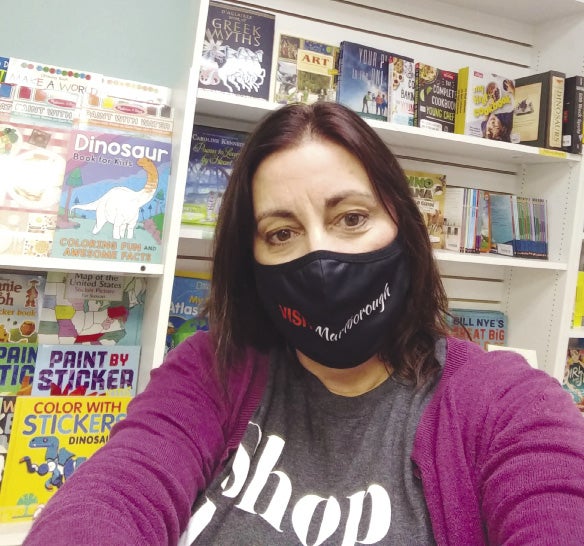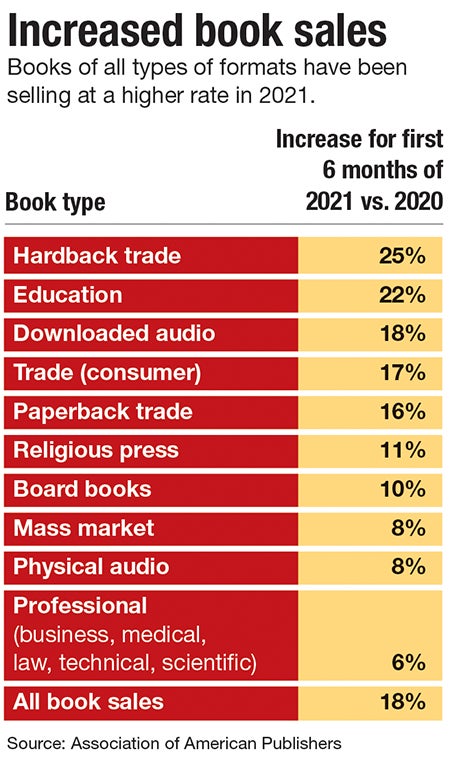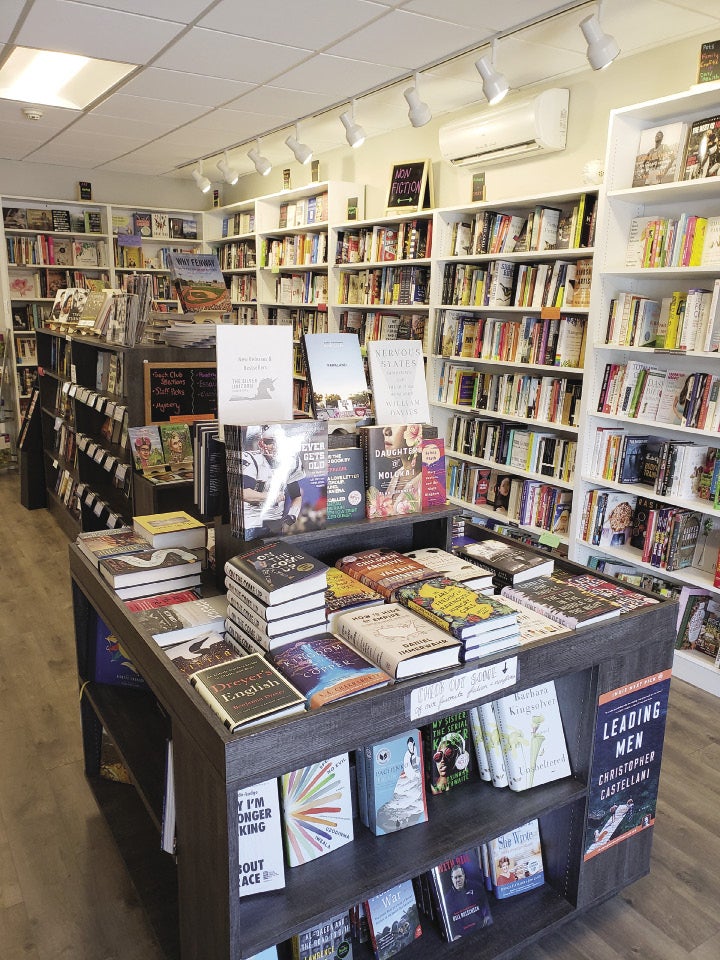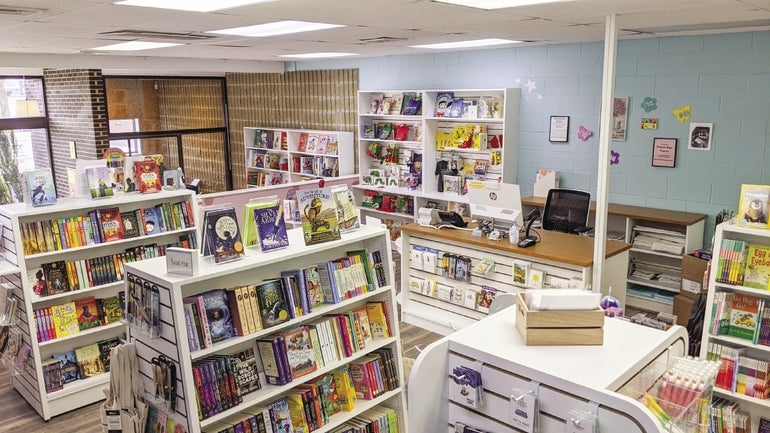As people around the U.S. turned inward over the last year and a half, consumers appear to have found a respite from the onslaught of technology dependence: reading.
Get Instant Access to This Article
Subscribe to Worcester Business Journal and get immediate access to all of our subscriber-only content and much more.
- Critical Central Massachusetts business news updated daily.
- Immediate access to all subscriber-only content on our website.
- Bi-weekly print or digital editions of our award-winning publication.
- Special bonus issues like the WBJ Book of Lists.
- Exclusive ticket prize draws for our in-person events.
Click here to purchase a paywall bypass link for this article.
As people around the U.S. turned inward over the last year and a half, adjusting to virtual work calls, remote schooling, and Zoom birthday parties, consumers appear to have found a respite from the onslaught of technology dependence: reading.
In June, the Association of American Publishers reported consumer book sales were up 17% year-to-date, bringing in $4.1 billion in revenue. Revenues across book categories were up 18.1%, bringing in $6.3 billion in the first six months of 2021.
Although Amazon and other major retailers continue to dominate the book market, independent booksellers who adapted to changing economic and social conditions have been able to eke out a piece of that revenue pie, catering to a consumer base looking to both get away from screen time and support local businesses in their community, including those in Central Massachusetts.
“One of the main things that really helped us at the beginning of the pandemic actually was Amazon, because for five or six weeks they stopped shipping books,” said Paul Swydan, owner and operator of The Silver Unicorn Bookstore in Acton. “They chose to focus on the grocery delivery market, which they've been trying to get a stranglehold on for almost a decade.
“If you wanted a book, you had to get it from somewhere else, and a lot of times that somewhere else was us,” Swydan said. “So that really helped us grow our customer base.”

At the same time, some local booksellers found a customer base looking for ways to entertain children who spent months glued to laptops and other devices during virtual school. That was the case for librarian and teacher Alyson Cox, owner of Word on the Street in Marlborough, a children’s bookstore she opened in October just months after being laid off from her own job.
“We were the kind of business people were looking for during the pandemic,” Cox said.
Her customers were sick of screentime and wanted to find board games, books, and other analogue ways to pass time.
Double-edged sword
“When it comes to independent bookstores, they are foundational in every community in which they sit,” said Beth Ineson, executive director of the New England Independent Booksellers Association.
Such stores tend to play active roles in the areas they set up shop, Ineson said, from sponsoring local sports teams to hosting community events. That desire to be part of their community is what drives many booksellers to set up shop in the first place, she said.
While many were quick to adapt, building out their own ecommerce options or taking advantage of pre-existing models available through industry groups, it was difficult to transition into functioning as a de-facto warehouse during pandemic-induced business closures, Ineson said. They had to be quick on their feet and open to adapting their business models, while pausing much of that in-person connection their sector is known for.
Those who had rudimentary or no e-commerce option at all were tasked with developing and maturing their systems. Those who already had sophisticated online purchasing options leaned into that side of their business.
Bookshop.org launched in January 2020 and works with bookstore affiliates to help them fulfill orders directly through virtual storefronts. Per the website, bookstores receive 30% of the cover price of books sales they generate through the site, without having to do any of the backend business, like stocking and shipping. Secondly, Bookshop.org sets aside 10% of its regular sales into a pool of money it divides and then distributes to its independent bookstore affiliates twice a year.

Central Massachusetts bookstores have hopped on the Bookshop bandwagon, including both Word on the Street and The Silver Unicorn. While neither has excessively hyped their affiliation and individual storefronts, both store owners said the biannual payout was a great perk of collaborating with the online retailer.
While local shops in Central Massachusetts and beyond were tasked with surmounting these pandemic-induced hurdles, so far the independent bookstore market in the region has come out strongly on the other side.

“I did think at the early pandemic that we would see stores close in New England, and indeed we did, but you can count them on one hand and still have fingers left over,” Ineson said.
Despite challenges brought on by online competitors, nevermind a pandemic, the industry appears to be headed into a new chapter.
“The overall trend over the last 20 years, yes, the number of independent bookstores in New England has gone down sharply,” Ineson said. “But the overall trend over the last eight years is that the number of independent stores has increased every year.”
Membership at NEIBA, she said, has consistently increased for nearly a decade. That’s in line with larger industry trends across the country.
A 2020 working paper from Harvard Business School professor Ryan Raffaelli, pulling on data from the American Booksellers Association, indicated a 49% growth in independent bookstores between 2009 and 2018, increasing from 1,651 to 2,470.
He credited the resurgence to what he called the 3C’s: community, curation, and convening, finding independent bookstore owners wooed customers back from Amazon and major chains by underscoring a connection to community values, curating personalized inventory, and casting themselves as intellectual hubs.
That’s a major shift from the late 1990s when the ABA reported a 43% drop in the number of independent bookstores in the latter half of the decade, directly following the launch of Amazon.com, per Raffaelli’s report.
Viable industry
That kind of data is what provided the final push for Jo and Huck Truesdell, owners of TidePool Bookshop in Worcester to open for online sales in April 2020 and then to in-person sales at the end of that summer.
The duo first broached the idea in 2017, after they retired and realized the city had no independent bookstores, aside from Annie’s Book Stop, which is a franchise corporation operating locations around New England. Between their first discussions and the time it came to open shop, two independent bookstores opened in their market: Bedlam Book Cafe, as well as Root and Press.
They debated, for a time, whether moving forward was the right idea.
“We didn’t want to open a bookstore. We wanted to open a bookstore in Worcester,” Truesdell, a retired longtime Worcester kindergarten teacher said.
Ultimately, industry trends and examples in cities like Providence, which has a healthy independent bookstore ecosystem, persuaded them to keep going.
“It makes sense, and we’re seeing it play out here at TidePool,” Truesdell said.
From their shop, a built-out store in an old mill building, with custom-made shelves and warm lighting, the Truesdells are optimistic they made the right choice, as customers trickle in, often hearing about TidePool through word of mouth. They’ve yet to hold an official grand opening because of the coronavirus pandemic, but they’re finding that the local community is welcoming them, noting Millennials new to the city have had a particular presence in their store. They are eagerly looking forward to building out their events schedules as they begin integrating in-person events into their calendars.
“We think it’ll be a successful business,” Truesdell said.

